Motorhome Vs Caravan: Which is best?
Motorhome Vs Caravan: Which is best?
Are you in a position where you are deciding whether to buy a motorhome or a caravan? Have you considered buying one or the other but are unsure if they are right for you? Maybe you are considering swopping from a caravan to a motorhome, or vice versa. In this blog I’m going to talk about choosing a
motorhome, or a caravan, and answer those questions.
We ourselves have recently been in this position, so I will be talking from personal experience as a buyer.
Following on from this blog, we are going to have advice on buying a new motorhome and advice on buying a new caravan. Please do follow the series
if you’re looking to buy and looking for advice.
Table of Contents
Our Own Experience
Our journey began back in 2017, when we started looking at touring caravans. At that time we had no interest whatsoever in a motorhome. We spent a lot of time visiting dealerships, looking at caravans. We ordered one in October 2017, this was at the NEC Caravan Show, and we took collection
in April 2018.
We had our caravan all the way up until June 2020, when we decided that caravanning was not going to suit our lifestyle anymore. Having moved location to the south west, we found we were considering a motorhome. Believe it or not we had completely changed direction, subsequently we had three months with an Adria motorhome loan.
This allowed us to experience motorhoming and make a comparison between the two. We then made a decision on which to buy based on this.
I will now explain the process that you need to be looking at to make the decision. It might be that your mind is completely already made up, or it might be that you’re a little bit indecisive and not sure.
Cost
Cost is a big factor in buying a new leisure vehicle and we are going to be looking at the price of new vehicles in this blog. This because it’s easy to make a comparison because the price is fixed for the new product.
Purchase Price
The cost of a new caravan, an entry-level caravan, is going to start at around £18,000. Such examples are the Bailey Phoenix, the Elddis Avante, the Swift Sprite or the Adria Altea. Prices then go up throughout the ranges and they’ll go up to a top price of around £36,500. That could be for an Elddis Buccaneer, a Swift Elegance or a Coachman Laser. Where you fit within that is completely up to you and your budget. You may choose to fund that purchase through cash, loan or a finance deal.
The main thing you’ve got to think about when buying the caravan is, although the initial outlay may be less you’re going to need a tow vehicle. It might be the car you already own is more than capable of towing. You may already have a tow bar fitted. If not, you’re going to have to think about buying a new tow car and having a tow bar fitted. When we bought our new caravan we negotiated a price of £21,000, a saving of £1500. We had to buy a new tow car and our tow car cost us £33,000, a saving of £2500.
The cost of a motorhome, you could be looking at around £43,000 for an entry level Elddis, or £47,000 for an Auto-Trail F60. Prices rapidly increase and you could be going up to well over £100,000. It’s completely up to you how much you want to spend. It’s important to consider you are going to need a second vehicle at home. A motorhome is not going to be suitable to use as a main vehicle, you’re still going to have to have something at home to drive as your everyday car.
When you balance the tow car and caravan purchase to a motor home purchase you’re actually not in a very different place. You can finance both vehicles through dealerships on on a PCP.
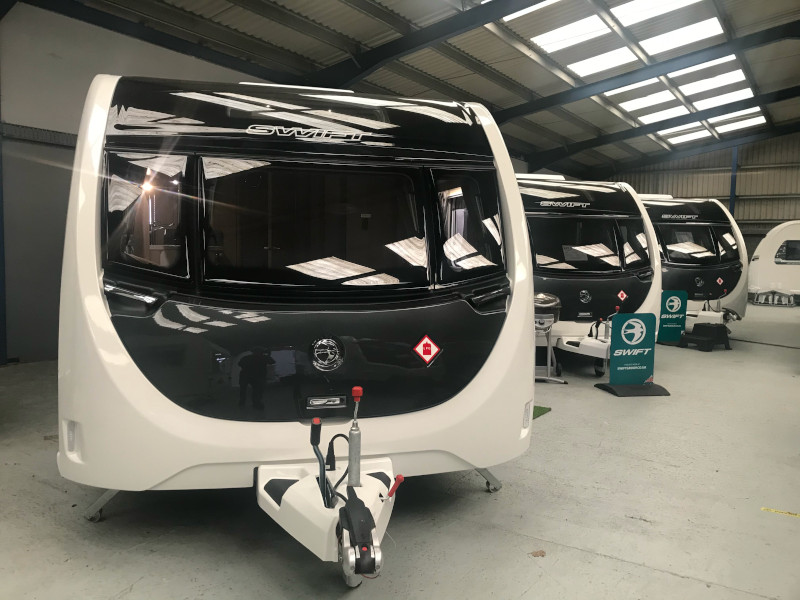
Insurance
Other factors you need to think about are insurance. With a caravan insurance is not a legal requirement, but I would advise that you insure your new caravan. This is a massive outlay and insurance is going to cover you for theft, damage and third party risks. Third party risk is for if your caravan causes damage to somebody else or their property. The cost of caravan insurance varies between the person, where you live, where you store it, the caravan value and the security you have. On average, insurance for a caravan could start at around £150 and go up to £400, depending on your caravan. We always paid £230-250 to insure our brand new Adria Adora Isonzo caravan.
Motorhome insurance is a legal requirement if you’re going to drive the motorhome on a road. By law you have to have a minimum of a third party policy in place. The level of cover you can have is from third party to fully comprehensive and that’s going to cover if you’re in a collision, or if damage is caused to your motorhome or it is stolen. The policy price depends on
your no claims bonus, vehicle value, fitted security, where you store it and your home address. You need to budget from £250 pounds to up to £1000. It is worth noting that Caravan Guard motorhome insurance does include UK Roadside Assistance. It does not have any length or weight restrictions, which some recovery policies do. European Roadside Assistance can be added as an option to Caravan Guard policies.
Recovery Policy
If you’re wanting a policy for recovery, when you’re towing or driving, I would recommend, if you don’t get a policy of recovery with the insurance, that you look to one of the clubs. The Caravan and Motorhome Club and The Camping and Caravanning Club both offer good policies. Make sure you check for any length or weight restrictions. Recovery can cost you up to £250 for a year policy, that does include include European cover.
Vehicle Excise Licence (Road Tax)
You don’t need to tax a caravan, you do need to tax a motorhome and a motorhome up to 3.5 tonnes is going to cost you £270 a year in vehicle excise licence.
Storage
This is important for the security of your motorhome or caravan. We’ve always kept our caravan in a storage yard. We’ve always used CaSSOA gold standard and we have paid between £300-800 for one years storage. It varies dramatically depending where in the country you are. Places I found that are very expensive are in the south of the country, like Dorset. In the north I have found cheaper storage, budget around £500 for storage costs.
Servicing
Servicing is not a legal requirement on a caravan, but it often is the case that you must have it done yearly to maintain your warranty. I would advise it as well for safety reasons. Caravan servicing varies between dealerships or whether you use a mobile approved workshop engineer. Budget around £199 and upwards for a single axle caravan and £249 for a twin axle.
Motorhomes have two types of servicing, you’re going to require a mechanical service on your cab, for example the Fiat Ducato. That might be a yearly oil change and then a two year main service, depending on which chassis your motor home is on. You’re going to require a yearly habitation service, which will include the gas and the damp report, and this will be required for the warranty too. Realistically you will be looking at £300-500 a year to service a motorhome, plus any additional mechanical costs that you might have. You’ll also need to MOT your motorhome when it reaches three years of age.
Those are the general costs, in balance it’s fair to say that the likelihood is a motorhome in the long run is going to be a slightly more expensive leisure vehicle to purchase, run and maintain. It is worth mentioning at this point that motorhomes do hold their value extremely well. Caravans do depreciate from new, but a lot of it is dependent on supply and demand. In terms of devaluation a motorhome will hold its value in the long run a lot better than a caravan.
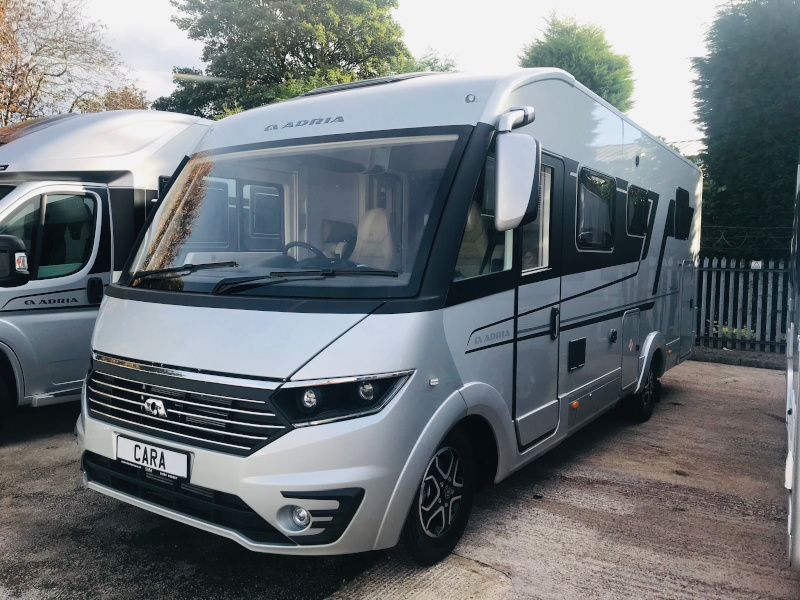
Driving Licence
Your Driving Licence will stipulate what you can drive legally on a road. The categories you hold can be found on the front and rear of the licence. If you passed your driving test before the 1st of January 1997 you will have the B and E (BE) category. This means you can tow almost any car and caravan combination the law permits (dependent on the tow limit of your car). You will also hold C1 on your licence, which means you can drive a vehicle up to 7.5 tonnes. You will hold C1E which means you can tow a trailer, or car, behind the motorhome too. This means you’re going to be able to drive a very large motorhome.
If you passed your test after the 1st of January 1997 you won’t automatically have BE, which means you can only drive a car and caravan combination up to a total of 3.5 tonnes, or a motorhome with a gross vehicle mass of up to 3.5 tonnes.
If you want to further information on that you’re best looking on the government website because that’s a whole different topic about those weights and measures. The main thing you need to know is whether you can drive, or tow, over or under three and a half tonnes.
You can take an additional test to pass the BE which is going to cost you around £500-£800. You can then tow over 3.5 tonnes
You can take a C1 test too at a cost of around £1000 and if you want to tow with the C1 you will need the C1E, this will cost extra.
Size, Payload and Vehicle Storage
Payload
Now let’s differentiate between the motorhome and the caravan here. With a caravan you’re going to have a MTPLM, that’s a maximum your caravan can weigh. Part of that is going to include your payload, an average payload on a caravan is 160kg. Your caravan payload can be found on the weight plate, manufacturers website or by taking the MIRO from the MTPLM. With some caravans it’ll be less some a lot more, you can up-plate some caravans which means it’ll give you more payload. Not only have you got the payload in your caravan but you’ve got the payload within your car. If you’re a family you can put more items in your car boot. The payload in your car and caravan should be more than adequate for your family.
A motorhome has a GVM (gross vehicle mass), if you’re buying a 3.5 tonne motorhome you’re going to have to watch your payload. The bigger the motorhome, generally, the less payload because the size of it is going to take up a lot of that 3.5 tonnes. If you’re a family and you buy a large six berth motorhome you might have a payload of something as small as 250-300kg.
Within that 300kg you’ve got to subtract the weight of the passengers, all your clothes and all your equipment.
If you’re a couple and you’re buying a smaller motorhome, you could have a very generous payload of up to 600 kilograms, maybe even a little bit more. That’s going to give you a super payload, maybe more than you were hoping to get with the caravan and the car.
It’s worth looking at those figures, making a comparison and as a family deciding which is going to work best for you.
If you have C1 on your licence and purchase a motorhome with a GVM over 3.5 tonnes then you can enjoy a payload of up to and over one tonne.
Vehicle Storage
Most European motorhomes offer an excellent sized garage where you can store your equipment. The garage is ideal for tables, chairs, electric bikes and accessories. With a garage everything is packed away safely for travelling.
A caravan will usually have a front locker, some do not. You can store some caravan accessories here but be mindful of nose weight. Caravan storage is found under the beds and the sofas.
Size
When purchasing a large or wide caravan it is worth considering access to campsites, small pitches and narrow lanes. We owned an Adria Isonzo, it was eight feet wide and 8.24 meters long. We did struggle on site sometimes to find pitches that were big enough to for us, especially if we had an awning too.
The same goes for if you’re looking at buying a big motorhome. If you’re looking at a motorhome over eight meters long some sites may struggle to accommodate the length of your motorhome.
Touring Style
Your touring style has to be the most important factor in this decision. It’s not about what anyone else thinks you should buy, or about what other people do, it’s what you do and i’m going to talk from our experience now. When we bought our caravan our plan was to use it for touring for several weeks at a time. We lived up in the north and we were coming down to the south on holiday. We were having a few weeks away on a site, pitching up with our awning and exploring from that site. We planned to travel to Europe and do the same there, and because of that a caravan was going to be ideal. It was going to give us great internal space on site, we knew we’d have a big lounge, we’d have a lovely washroom, a great big island bed and all the storage in the wardrobe. We bought a caravan and we found that it worked a treat for us. If your touring style is going away on a family, or a couple’s holiday, for a week more, I would say strongly think about a caravan. If you’re parked up in one spot it’s really useful to have all that space and your awning as well. You also have your car to explore the area and have trips out.
If you’re planning on shooting off for the weekend, doing pub stops and touring where you’re stopping a couple of nights in each place, then that for me is when the motorhome is absolutely perfect. That is was what we discovered from our experience with the little Adria Matrix. We literally jumped in it on the drive, we went off for a couple of nights, we went off grid and it was fantastic. We weren’t having to worry about arriving on site and putting our legs down, filling up our water barrels general setting up.
When we went to Dorset and Devon we went off to explore each day in the motorhome. I found myself doing a lot more planning around where we were going to be able to park. Especially with the height of the motorhome height barriers on car parks. What I would say is if you are dashing off for little breaks, or you are touring a couple of nights in each place, it may well be that the motorhome is going to suit your touring needs more.
After selling our Adria caravan we had the motorhome experience for three months. Based on our experience we have now ordered a motorhome as it works better for our touring style.
If I was still touring for a week or two, staying on the same site, then without a doubt I would be sticking with the caravan.
Whatever you choose, take your time and don’t rush into anything, look at the models, look at the layouts and see which is going to work best for you.

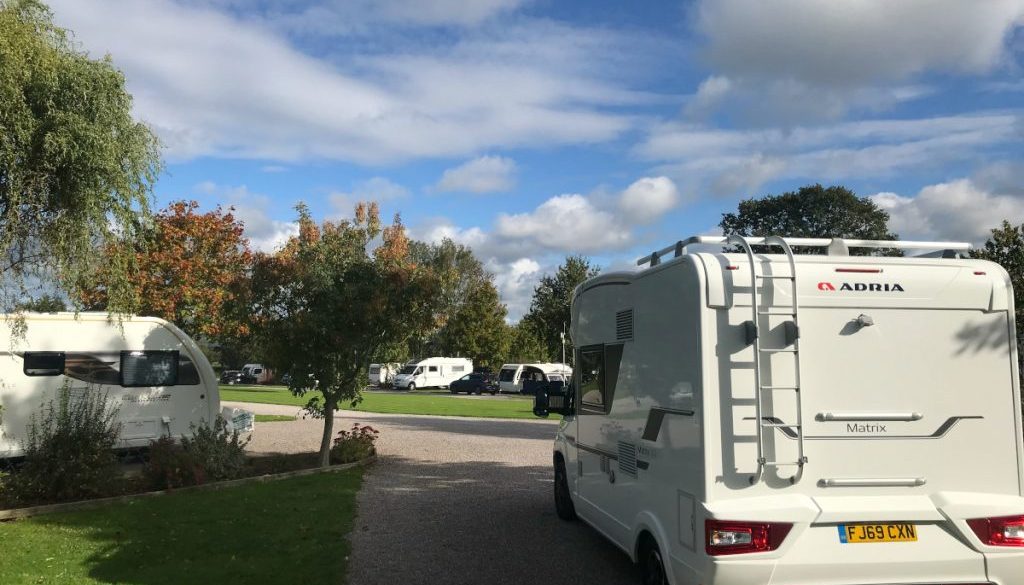

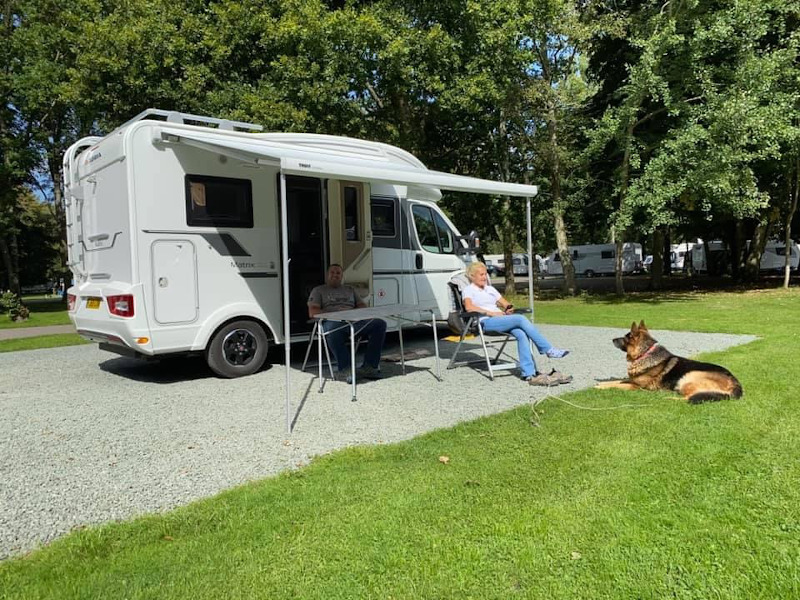
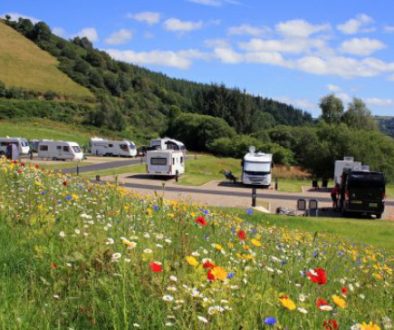
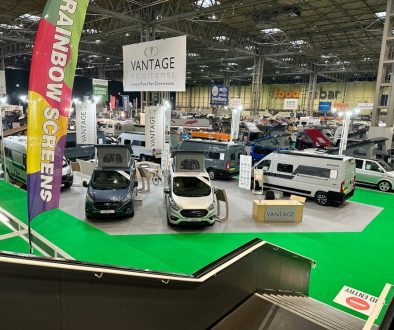
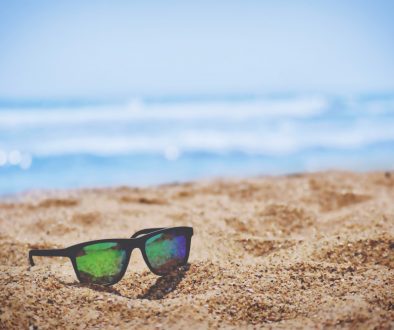
Thank you so much for this information, very comprehensive and thorough! There’s more to think about than first thought, a lot of money too apart from the initial purchase! Still, I know everyone here are glad to pay it for the freedom you have. Will be interesting to see how many actually take to the road when the lockdown ends!! Record sales apparently everywhere!! Take care you two and Fudge too!! xx
Thank you for taking the time to read our blog Anne. There is plenty to consider cost wise when looking at the inital set up and this will be covered in more detail for each on the upcoming blogs and vlogs. Stay safe and hopefully catch up soon, all the best Jules, Karina and Fudge.
[…] this blog I’m going to talk about buying a brand new caravan. It might be that you’ve never owned a caravan, or you currently have one and you’re […]
[…] considering buying your first motorhome, or a new motorhome, this will help you.Our own buying experience was based on these tips. We have ordered our first motorhome after having a motorhoming experience […]
[…] much to love about having a motorhome in your life, but there’s no avoiding the fact that they can be expensive. To make sure you get most from your […]
[…] many of us look towards holidaying within the UK in the coming years, a boom in demand for motorhomes is expected. It might be you have been considering a motorhome for some time, or you might be […]
[…] small electric dehumidifier can pull moisture out of the air in your caravan or motorhome and reduce condensation. Consequently, consider purchasing an electric dehumidifier as an easy […]